(5)なぜ口の強い人には勝てないのか~毒舌と暴言を駆使するレーニン流弁論術の秘密とは
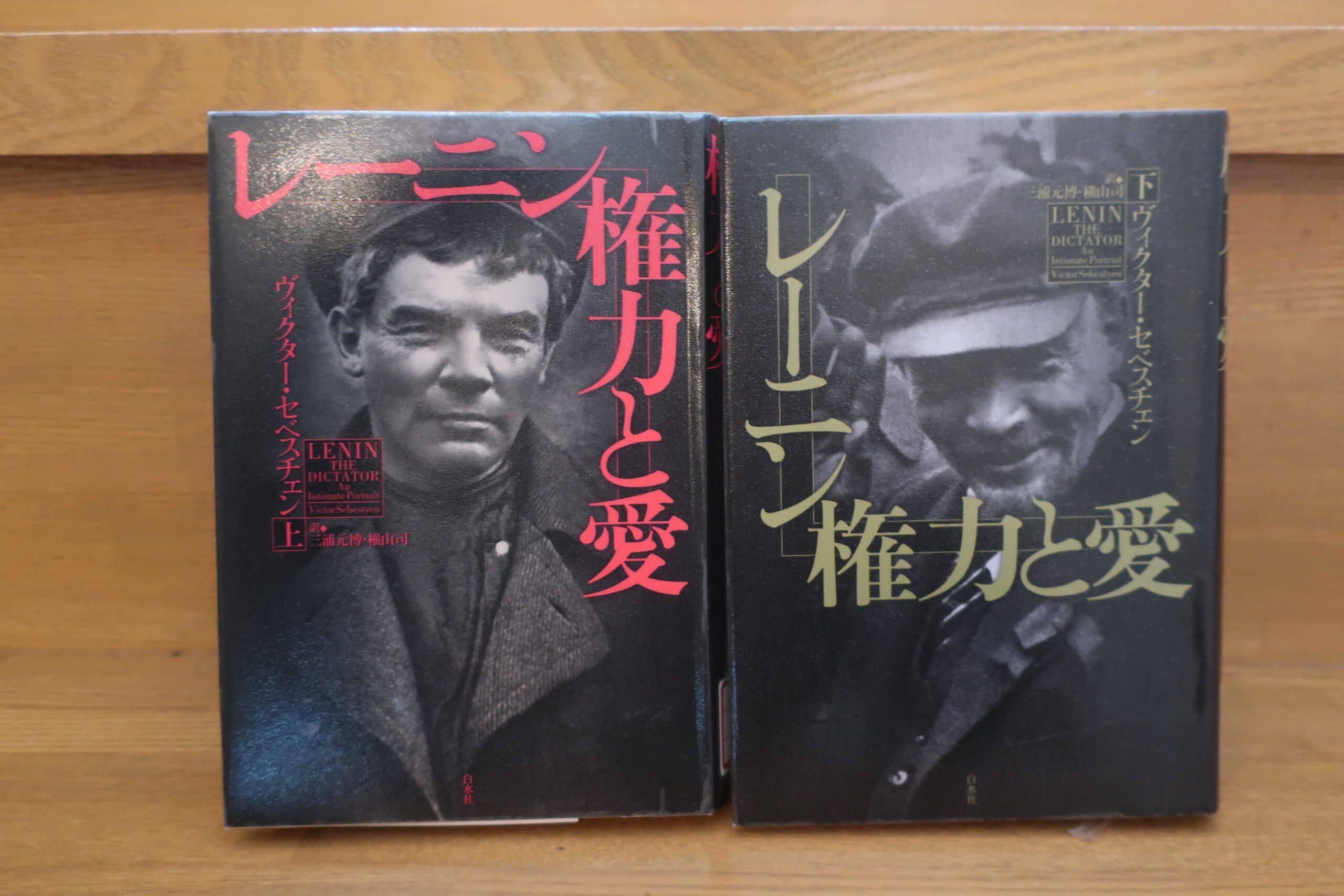
ヴィクター・セベスチェン『レーニン 権力と愛』を読む⑸
引き続きヴィクター・セベスチェン著『レーニン 権力と愛』の中から印象に残った箇所を紹介していきます。
1891年の大飢饉とレーニンー冷酷な視線の萌芽
サマラ時代に彼が手を染めた唯一の政治活動は、彼の手法について多くのことを教えてくれる。それは厳密さ、自信、残酷なまでの冷徹な論理展開、そして戦略的見通しだ。ウリヤーノフにとっては、目的が常に手段を正当化する。そして、彼はその目的を常に視野に入れているのだ。彼は人から嫌われることを意に介さなかった。
ヴォルガ地方はロシア有数の穀倉地帯を含んでいたのに、一八九一~九二年、飢饉に見舞われた。この地方では過去数世紀の間、時々飢饉が発生したが、この時の飢饉は何世代もの間で最悪だった。農民を中心に四〇万人以上が餓死するか、発疹チフスやコレラにかかって死んだ。帝政を支持していた人びとも含め、中産階級の多くが政府の無能を責めた。飢餓は外国の報道機関で大きく伝えられ、専制はかつてないほど国際的に追い詰められた。ロシアの評判は地に落ちた。
中央政府は、食べ物を求めて都市に流入する数百万人の飢えた農民に救いの手を差し伸べることを、ほとんどしなかった。道端には埋葬されないままの遺体が転がり、病院はなすすべもなかった。小説家のレフ・トルストイが、アントン・チェーホフをはじめとした作家仲間の助けを借りながら、飢餓救済キャンぺーンを始めた。熟練の医師であるチェーホフは無料食堂を開設し、救急センターでボランティアとして働いた。巨額の募金が集まったが、食料はまったく足りなかった。
非常に急進的でリベラルな見解に従えば、この飢饉は体制の機能不全を示すもう一つの例だった。この体制の官僚機構は、ロシア国民を飢えから救うにはあまりにも動きが鈍くて効率が悪く、犠牲者数がどれほどになろうと一向に心を動かされることがないのだ。
ウラジーミル・ウリヤーノフは、最悪の飢饉地域周辺にこれまで住んできたにもかかわらず、瀕死の農民を助ける救済・慈善活動にかかわろうとしなかった。彼にとって重要なのは、この飢饉が専制を弱らせ、革命の大義を促進する可能性があるということだった。
飢餓で死ぬ数千人は、帝政の抑圧に対する戦争での、不運な犠牲者にすぎないのだ。資本主義はその本性からして、ほとんどの人民を傷つけ、多くを殺すのだと彼は論じた。飢饉は分かりやすい証明なのだ、と。
こうした主張は革命家の間でも特異で、彼はほとんど孤立していた。彼の家族でさえ、彼がこのような心ない、残酷とも見える態度を取ることが信じられなかった。姉アンナは食料支援のために募金を集め、病人のもとへ薬を配って歩いた。妹のマリヤは彼の無慈悲さにぞっとした。彼女がウラジーミルを長兄と比較したパラグラフのなかに、彼女があえて兄を批判したまれな例の一つが見られる。
「ウラジーミル・イリイッチはアレクサンドル・イリイッチとは性格が異なっていたようにわたしには思える……ウラジーミルは自分の生活のすべてを労働者階級のために捧げていたけれども、自己犠牲の資質はなかった」
非人間的だという自分に対する非難を、彼は硬直した論理と、もし生きていれぱマルクス自身が決して容認しなかったようなマルクス主義の冷たい解釈で、一笑に付すのが常だった。「彼は救済委員会に対する、組織的で容赦のない反対宣伝を行った」と、トロツキーはのちに語っている。
政府の無能と無慈悲が白日のもとに晒されれば、専制の終焉が近づく、とウリヤーノフは確信していた。「必要の海がスプーン一杯の慈善で汲み尽くせると考えるのは感傷である」と彼は言った。「飢饉は……物事を前へ進める役割を果たしたのだ」と。
白水社、ヴィクター・セベスチェン、三浦元博、横山司訳『レーニン 権力と愛』上巻P100-102
※一部改行しました
1891年の大飢饉は40万人以上が亡くなる大惨事でした。この大惨事に対してトルストイやチェーホフが支援のために立ち上がったというのは興味深い事実でした。
しかしレーニンは彼らとは反対にこの飢饉に対して全く違った感情を抱くことになりました。上の引用にありますように、この時点ですでに彼は「目的は手段を正当化する」という考えを持っていたのでした。
この考えからすると、大飢饉によって政府の無能さが明らかにされ、革命が近づく。だからこの飢饉は喜ばしいものだという理屈になります。レーニン、スターリンによる恐るべき独裁の萌芽がすでに現れているようです。
実はこの理屈はすでにマルクスやエンゲルスの中にも存在していたものでした。そのことについては以下の記事でお話ししていますのでぜひご参照ください。
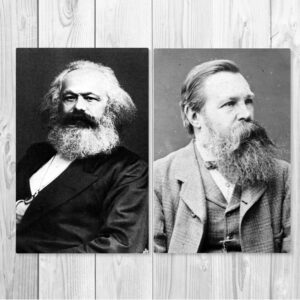
革命家レーニン(ウリヤーノフ)の登場
革命の「扇動者」として登場した当初から、ウリヤーノフが鉄の規律と、自分が正しいという揺るぎない信念をもった一途な人間であることに、周囲はすぐ気づいた。
「彼はある力によって輝いていた。それは魅力というのとは少しちがい、カリスマでもなく、知的エネルギーなのだ……彼は人を引きつけるやり方で、自身が大義と一体化していた」と、ピョートル・ストルーヴェは述べている。かつてウリヤーノフの同志の社会主義者だったが、のちに彼の多くの友人たちと同様、敵となった人物だ。
ウリヤーノフはジャーナリストとして原稿を素早く効率的に執筆する方法を学び、筆達者な書き手になった。決して最盛期のマルクスやトロツキーのような、華々しく熱っぽい名言家ではない。だが、盛んだったころの彼の文章は明晰で説得力があり、非常に効果的にアイロニーを使うことができた。
彼は細身の剣よりは、破城槌の方を振るったが、その最良の著作では、しばしば根本的に誤った根拠を出発点としているにもかかわらず、理性、論理、知力によって強い説得力を示すことができている。彼は一生涯に、家族、友人、同志への手紙を除いて一〇〇〇万語以上を執筆し、出版した。これは驚くべき生産量だ
白水社、ヴィクター・セベスチェン、三浦元博、横山司訳『レーニン 権力と愛』上巻P104-105
※一部改行しました
レーニンが革命家として頭角を現し始めたときの雰囲気が伝わってきます。彼の圧倒的な知的エネルギーがすでに周囲に影響を及ぼし始めていました。
そしてジャーナリストとしての活動が彼の筆にさらに磨きをかけます。生涯で1000万語という膨大な量の文章を彼は残したのでありました。政治活動をしながらのこの執筆量は驚きです。
敵をやっつけるレーニンの弁舌ー毒舌・暴言を多用する独特な議論術
ウリヤーノフの議論や討論の手法は若いうちに確立され、その後二〇年の間、大きくは変わらなかった。彼は一段と討論巧者になり、より自信たっぷりになって技術も冴え渡った。しかし、いつも傲慢でロが悪く、戦闘的で、時には徹底的に意地が悪かった。
彼は「憎しみ、反感、軽蔑を呼び起こすように計算した……相手を説得したり、その誤りを正したりするためではなく、相手を叩きのめすため、相手を消し去るため、相手の組織を地上から抹殺するため」だと自分でも認めているような、暴力的な言葉をわざと使って、服従するまで相手を叩きのめした。
サンクトぺテルブルクの反体制派サロンにデビューした当初から、彼は他の急進的扇動家とは明らかに違ったやり方を編み出し、ほとんど一人で革命的左翼の言語を変えてしまった。
革命的左翼は彼が始めた粗野で攻撃的なやり方を踏襲するようになる。共産主義世界では何世代にもわたって、イデオロギー上の敵同士はもちろんのこと、いわゆる同志の間でもとげとげしい毒舌と暴言がその政治論議の特徴となった。
侮辱的なやりとりは、これがレーニンのやり方だった、という理由で正当化された。これが、ソヴィエト連邦の言語、ライフスタイル、政治「文化」の非常に多くを創り上げた国父によって鼓吹された、ソヴィエト方式というものだった。
レーニンの後継者たちは、スターリン時代よりずっとあとになっても、この嘲笑の手法を採った。世界各地の共産党は、一九九〇年代初めにソ連が崩壊したあとも、理性よりも感情に訴えるのが道理にかなうということ、そしてどうすれば無情なまでに効率的にそれを実行できるかを知っていた。これがレーニン主義の基本的教えの一つだった。
「容赦ない論争がボリシェヴィキのお決まりの実践になった」と、主要なレーニン批判者の一人は書いた。「そして、言葉の残忍さを補完するために、言葉をそれに対応した行為、肉体的暴力に転換することは、そのプロセスの論理的な帰結に過ぎない……これがウラジーミル・イリイッチの個性に特異的にかなった議論の作法だった」と。
白水社、ヴィクター・セベスチェン、三浦元博、横山司訳『レーニン 権力と愛』上巻P118-119
※一部改行しました
レーニンは議論において異様な強さを見せました。その秘訣となったのが彼の毒舌や暴言でした。
権力を掌握するためには圧倒的に敵をやっつけなければならない。筋道通った理屈で話すことも彼にはできましたが、何より効果的だったのは毒舌と暴言で相手をたじたじにしてしまうことでした。
私たちの身近にもそういう例がきっとあると思います。理屈が通じず、ただただ強い言葉や人格攻撃でやりこめようとしてくる人・・・
そういう人は権力を欲しているのかもしれません。とにかく自分が上に立つために相手を屈服させようとするのです。そんな人に理路整然と建設的な議論をしようとしてもうまくいかないのは当然のことかもしれません。
こちらはよりよい成果を達成するためや、よい関係を作るために話し合いたいと思っているのに相手はそうではない。ただ目の前の相手をやり込めて自分が勝つことばかりを考えている。これでは話が噛み合うわけがありません。
こういう人にどう立ち向かえばいいのかというのは、永遠のテーマかもしれません。
毒舌と暴言の効果ーなぜ口の強い人に負けてしまうのか
討論の際の怒鳴り声は、部分的には、たしかにウラジーミルの激烈かつ負けず嫌いの気質を反映していた。しかし、その多くの部分は計算ずく、計画的であり、革命運動内部での果てしない派閥抗争で、彼に大いに役立つ戦術だった。それは彼の生涯と、さらにはその死後まで続くことになるのだ。
彼と意見を異にする人びとは「悪党」「俗物」「馬鹿」「くず野郎」「売女」「階級の裏切り者」「間抜けな小間使いばばあ」「ほら吹き(彼の著作に頻繁に出てくる、お気に入りの悪口の一つ)」「頓馬」だった。(中略)
「彼は敵対者に返答するのではない」と、モイシャ・オリギンは回想している。若い革命家として首都で名を馳せつつあった初期のころをから彼を知る長年の同志だ。
「彼は相手を生体解剖する。彼はかみそりの刃のように鋭い。頭脳の働きの正確さは驚くほどだ。彼は討論の言葉に含まれるすべての欠陥を感知する。自分が受け入れることのできない前提については、これに不同意を表明し、その前提からまったくもって馬鹿げた結論を導き出してみせる。彼はまた冷笑的でもある。相手をあざけり酷評する。彼の言うことを聞いていると、相手は無知で、馬鹿で、取るに足りない出しゃばりだと思えてくる。彼に顕著な論理の力に皆が心を奪われてしまう。彼の知的情熱に皆が圧倒されてしまうのだ」
相手は通常、自分が「裏切り者の悪党」や「糞」だということを否定するか、あるいは、肩をすくめ、討論の場をウリヤーノフに明け渡して退場するしかなかった。
急進的左翼にとって、これはまったく新しい討論の仕方であり、同志たちはショックを受けた。ロシアの知識人は伝統的に礼儀正しく、意見を異にする場合でもーそういうことはしばしばあったがー不同意である旨を、礼節をもって表明した。
彼は個人的な付き合いでは、自分の育ちの良さを決して忘れず、ほとんどいつも完璧な行儀作法と上品さを示した。しかし、ことが政治となると、タバコの煙が充満する陰謀部屋での彼は容赦ない。彼ほど情熱的ではなく、全身全霊を傾けているわけでもなく、冷酷な野心家でもない人びとは、攻撃の応酬をする備えも、そんな気もなく、運動から去ったり、彼と顔を合わせて、悪口雑言に耐える必要がまずないライバル・グループに移ったりした。これはウリヤーノフの望むところだ。彼が多くの闘争に勝ったのは、相手が余りにも疲労困憊していたか、彼との衝突を望まなかったためなのだ。
将来のソ連高官で、ニ〇世紀になるころからの古参同志、ウラジーミル・ヴォイチンスキーがはっきりと見てとったように、それは計算ずくの戦術だった。
「ウラジーミル・イリイッチは、わたしが政治活動で出会ったうちで多分、もっとも感情を表さない人間だった。憎悪も思いやりもなく、敵対者に対する苛立ちすらない。議論における彼の容赦のなさは、個人的な怨恨から出たものではない―彼の著作の一つ一つの言葉、さらには一つ一つの中傷的な当てこすりでさえ、冷徹に計算されていた」
白水社、ヴィクター・セベスチェン、三浦元博、横山司訳『レーニン 権力と愛』上巻P119-120
※一部改行しました
レーニンの毒舌や暴言は全て計算されていたものでした。それら激しい言葉で相手をたじたじにし、議論する気を削ぐことが彼の思惑でした。
しかも彼のすごい所はそれをしてもなお聴衆には彼こそ正しいと思わせる知的能力があったことでした。
「こんな奴とやり合っても仕方がない」とライバルの多くは彼の前から去って行きます。そうすることでレーニンは自らのグループ内での権力を徐々に掌握していったのでした。
彼は敵を叩きのめすためにわざと毒舌や暴言を用います。冷静沈着にそれらを駆使する人間に勝つのは至難の技です。相手が嫌がることをこれでもかとやってくるわけですから。
こういう人間に対してどう接したらいいのか正直私にはわかりません。この本にも対処法は書かれていません。(人生のハウツー本ではないので当然ですが)
ただ、こういう人間がいる、そしてその最強クラスの人間がソ連を生み出したレーニンだったということを知るだけでも何か違うものがあるのではないかと思いました。次に日常生活でこういう人に会ったら、驚くよりも「あぁ、この人もレーニン的な人なのだな」と思うことができます。それだけでも気持ち的には少し違うのではないかなと思います。
こうした人間に対してどうすべきなのか。今後の私の課題のひとつとして考えていきたいと思います。
※2023年7月13日追記
毒舌や暴言を駆使する詭弁家に対する対応策として以下の記事をご参照ください。チェコの天才作家カレル・チャペックがこれでもかというくらい痛快にその秘策を伝授してくれます。
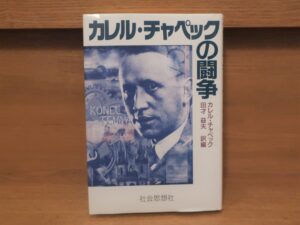
ゴーリキーから見たレーニンの演説
一方で、ウラジーミルは伝統的な討論方法を用いることもできた。彼は自分の考えを、単純化した直接的な方法で説明する技術に長けていた。彼自身は決して大衆の味方というわけではないが、知力を使って聴衆に効果的に語りかける方法を知っていた。
マクシム・ゴーリキーは何度も彼の演説を聴いたが、初めて聴いたときのことを忘れたことはなかった。
「彼のしわがれ声の『P』〔ラテン文字のrに相当〕の発音を聞くと、演説が下手なのではないかと思った。ところが、一分も経たないうちに、わたしはほかの皆と同じように心を奪われた。もっとも複雑な政治問題をこれほど簡明に語れる人間は、ほかに知らなかった……雄弁なフレーズを懸命に考えるという風ではなく、すべての言葉がはっきりと口に出され、その意味は驚くほど明瞭だった。
彼がこんな人間だとは思っていなかった。わたしは、彼には何か足りないものがあると感じていた……彼は余りにも飾り気がなさ過ぎた。彼のうちに「指導者」を思わせるものは何もなかった。彼は腕を伸ばし、手のひらを少し上に上げて、一語一語の重みをそれで測り、敵対者の発言をふるいにかけているように見えた……
終始一貫していて、完全で直接的で強力な演説と、彼の全体的な容姿は、古典芸術の真の傑作のようだった。すべてがそこにありながら、余分なものは何一つなく、飾りがそこにあるとしても、だれもそうとは気づかず、顔に二つの眼があり、手に五本の指があるように、それは自然で必然的なものであった」
白水社、ヴィクター・セベスチェン、三浦元博、横山司訳『レーニン 権力と愛』上巻P121-122
※一部改行しました
帝政末期からソ連期を代表する作家ゴーリキーから見たレーニン評です。
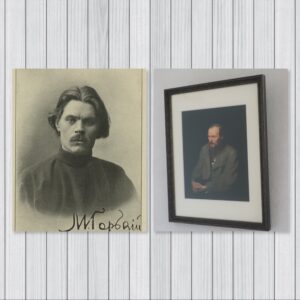
そのゴーリキーから見ても、レーニンの演説は強烈な印象を与えるものでした。
やはりレーニンの知的エネルギー、弁論術は圧倒的な感化力を具えているのでした。
続く
Amazon商品ページはこちら↓
次の記事はこちら
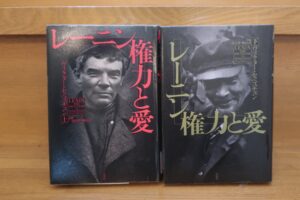
前の記事はこちら

「レーニン伝を読む」記事一覧はこちらです。全部で16記事あります

関連記事




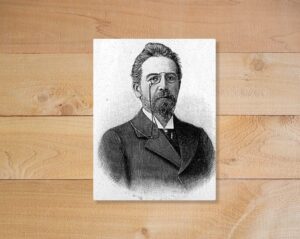


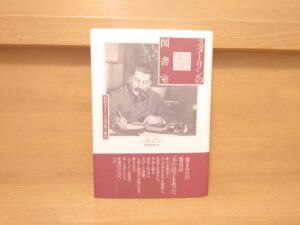
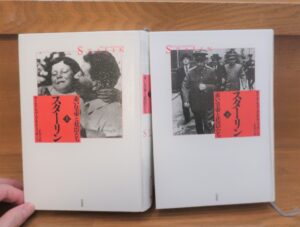
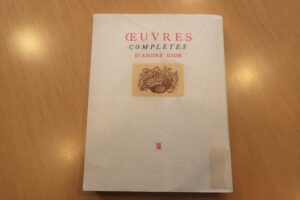
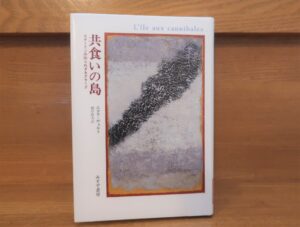
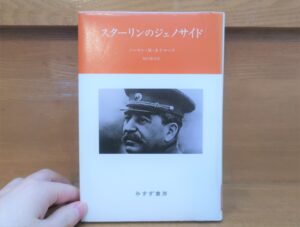
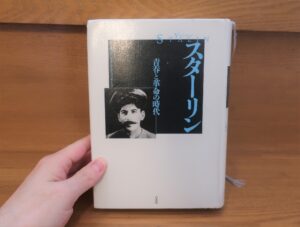
コメント